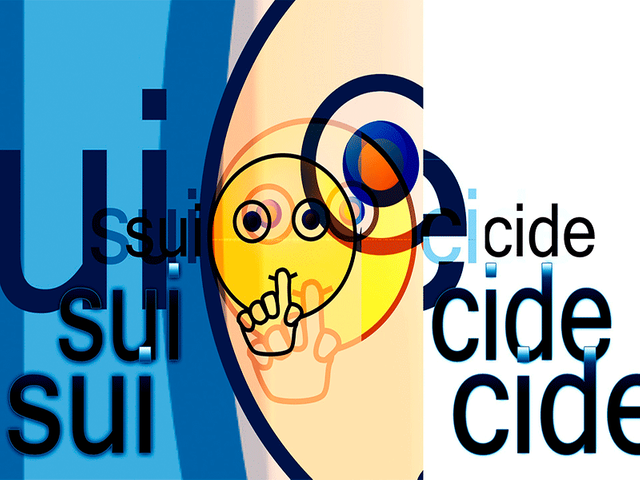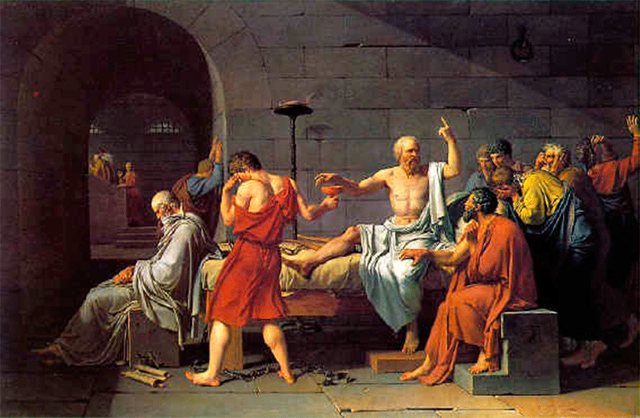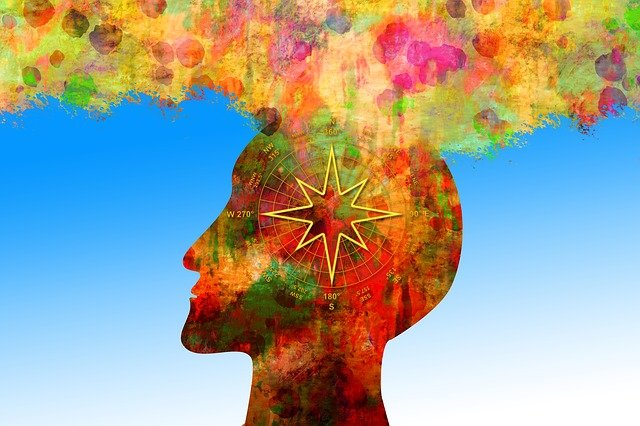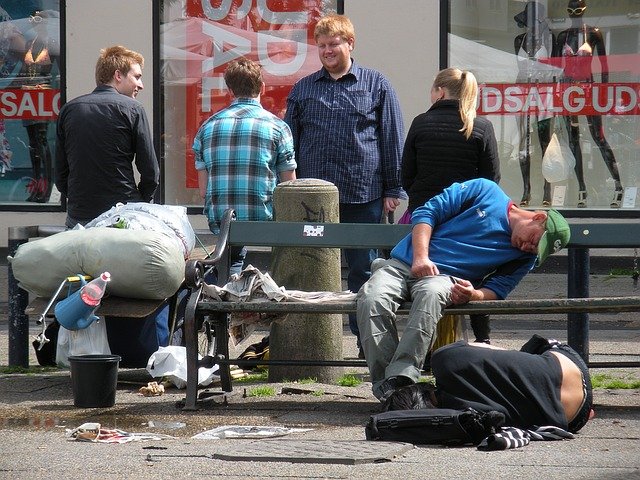Epistemological Path to Understanding Suicide in Society [Protection of Life]
Ulises Flores
23/11/2019
Greetings Stem-reader!
Introduction
Introduction
Speaking of suicide requires more than a simple prayer where it is said: it is about the action where a person makes the determination to end their life of their own free will. Since it is necessary for the person herself to take her own life, this is an important requirement. She should not count on the help or assistance of a third party; nor should she count on the help or assistance of a third party through deceit or the suggestion of another person. A last fundamental element is that the person achieves success in the lethal task. Otherwise, one would be talking about attempted or frustrated suicide.
For years we have tried to hide this type of events, at least it is not given the informative and communicational treatment it deserves. In fact, in many cultures and populations it is a familiar taboo. This attitude of concealment persists in many families. Much of society is filled with prejudice, customs, habits, and perhaps a lack of basic notions on such fundamental issues as understanding what suicide is and why a person makes the decision to take his or her own life.
Context of the problem
Context of the problem
According to the World Health Organization, about 800,000 people commit suicide each year worldwide, and this type of death has come to be considered the second leading cause of death among young people in the 15- and 29-year age group. Source Among the means used to put an end to life, the use of toxic agro-chemicals, hanging and firearms stand out. The organization points out that it is facing a serious public health problem; it shows concern and signs of occupation by calling for the activation of health plans to prevent suicide.

The suicidal person conceives death as the possible solution to an unresolved matter that needs to be dealt with effectively and expeditiously; that is why he plans his exit from the world and society that judges him and does not understand him. Above all, it hides the problem of public health.
The thematic context is configured with people who take their own lives, a society that does not fully understand the social and health phenomenon, and therefore hides it. While the world's highest health agency reports alarming numbers of materialized cases, without mentioning failed attempts, do not count the deaths that enter statistically as accidents at work, domestic, automobile, sports, art, among others where the protagonists are suicidal people and the authorities declare these events as accidents.
This guides the research questions Why commit suicide? What is the origin of this practice?
A multifactorial problem
A multifactorial problem
Various psychological, sociological, environmental, genetic, cultural, religious and philosophical factors, among others, interact in suicide. This disciplinary variety generates discrepancies when conceptualizing, understanding and effectively dealing with it. That is why I will make a brief, but substantial historiographic journey with the purpose of satiating the thirst for knowledge and better positioning contextually. Documentary revision that led me to Greece, in the splendour of its philosophical boom when it became known for the torrential waves of knowledge that echoed in the agoras of its young city states.
Suicide according to Socrates
Suicide according to Socrates
Socrates (470 a.e – 399 a.e) is denounced by Anito, Meleto and Lycon for corrupting youth, since he had been a teacher of Critias, who led a group of oligarchs who had made a pact with Sparta betraying Athens; also, he is charged with disobedience to the gods and introduction of beliefs in deities not known or approved by the Greek government. Despite his brilliant defense, he is found guilty and sentenced to death; the means of penal execution is poisoning by the ingestion of hemlock, an herbaceous plant with a high content of coniin, a neurotoxin that paralyzes the central nervous system.
However, if the person is forced or simply induced to take his own life is not a suicide. So there will be a brief argumentative description of why it is suicide.
 Attribution: OpenClipart-Vectors - Public domain image hosted in Pixabay [Modified]
Attribution: OpenClipart-Vectors - Public domain image hosted in Pixabay [Modified]
The judges sentenced Socrates and his deprivation of liberty was not immediate, he could have fled from Athens; some friends, followers and relatives proposed to him to leave the city and he refused. While in custody he refused escape plans, even the day before his execution he refused to take part in his departure after arrangement with the jailer. Here there is a philosophical and spiritual foundation which I will not go into; however, it can be said that Socrates conceived death as a means of liberation (of the soul). In his last days he asked for calm, serenity and silence; that is why he asked Jantipa (his wife) and his faithful servant to leave the enclosure, since they disturb the atmosphere with heartbroken cries.
Socrates' willingness to die
Socrates' willingness to die
Perhaps the most interesting moment of this event is when he expresses to his disciples that a true philosopher must live to philosophize and raise his level of consciousness, once he has attained knowledge, he is prepared to taste the truth and for this he must die. However, he emphasizes that it is not lawful to commit suicide. Cebes, one of his pupils is confused and asks him: What is this, you tell us that it is forbidden to take one's own life, nevertheless, a philosopher must follow the path of that master who takes his own life? With a lot of pedagogy Socrates replies that suicide is not a path to reach the truth. He explains to him that death is only a requirement, but it is not enough to obtain that elevated consciousness.
 Attribution: Evil Preacher - CC BY-SA 2.0 image hosted in Flickr
Attribution: Evil Preacher - CC BY-SA 2.0 image hosted in Flickr
He finishes convincing him when he tells him that those who have had a life practicing philosophy will be close to reaching knowledge; now, to reach the truth they must die. Logically, there is a considerable distance between knowledge and truth. Meanwhile, the person who climbs the podium of knowledge can freely commit suicide because it subtracts from him a level of consciousness that he will not obtain in life, the truth.
The greatest of all philosophers concludes by saying that suicide is not forbidden in this stretch of life, since knowledge has been attained. This determines that Socrates was poisoned at will and with knowledge of the cause. It was a suicide, the old sage had philosophized and attained all the wisdom needed to know, the fraudulent judgment was an instrument to reach the truth.
Thus Socrates committed suicide, conscious of his act and convinced to open the door that led him to the truth. However, of the 800,000 deaths due to suicide cases currently reported by the WHO, there are no signs of an active and passive subject (executioner of his own life) who has had a philosophical referent with coarse knowledge that is close to that of Socrates.
Platonic Philosophy
Platonic Philosophy
Aristocles Podros, better known by his pseudonym (Plato), drank from the source of knowledge of his suicidal teacher and friend (Socrates). In his work Leyes he expressed a strong rejection of suicide and at the same time ruled a set of dishonorable sanctions for those who would successfully perform the act, including the loss of the right to receive a funeral in accordance with the religious principles and customs of the Greeks, to be buried in wasteland and without mentioning his name on the tombstone; since he was considered a person who had injured not only his individual integrity but had dared to attack the identity of Greek citizenship.
Aristotelian Philosophy
Aristotelian Philosophy
Aristotle (384 - 322 a.e.), Plato's disciple, coincides to a great extent with his master's perception and in his parchment titled Nicomachean Ethics lets him see, he states that if the law does not typify the lawfulness in which a person takes his own life, then it is illicit to do so; because what the law does not admit, it forbids. He directs his philosophical position towards cowardice and dishonour of the act committed, which has negative repercussions for the police because the citizen must always seek to exceed his individual well-being to such an extent that it satisfies the welfare of the people as the social fabric of an integral nation.
Hegesian Philosophy
Hegesian Philosophy
Hegesias (399 - 300 a.e), Greek philosopher dissident of the Cyrenaica school, which professed that the ultimate purpose of life is the satisfaction of individual pleasure; practice that led to the dead end of pessimism; separates itself from its natural academy and reformulates that life is full of heartache and hopelessness in the designs of human pleasure; while happiness will never be achieved on the physical plane, while a way out of all this imaginary scandal is possible, suicide will be the path recommended by this philosopher.
Dozens of followers guided by their pedagogical objections would put an end to their lives. These events forced Ptolemy II to close his philosophical school, destroy his books and go into exile from Alexandria. Hegesias was baptized by his disciples as the persuader of death.
Roman Philosophy (Seneca)
Roman Philosophy (Seneca)
The philosopher, politician and orator Seneca (4 a.e - 65 n.e) disagrees with the Aristotelian position. He points out that the greatest blessing of the divine laws regarding life, which comes in one way only, is the diversity of ways to get out of it, one of these being suicide. Although not in its entirety, this philosopher agreed with the Socratic conception. In fact, his death occurs by his own will and means while he was in a tub of lukewarm water, philosophizing with his disciples.
 Attribution: bonnierbeteta - CC BY-SA 2.0 image hosted in Flickr
Attribution: bonnierbeteta - CC BY-SA 2.0 image hosted in Flickr Emperor Nero and the philosopher Seneca. Sculpture by Eduardo Barrón, conserved in the Provincial Museum of Zamora, located in the square of Santa Lucía de Zamora, Spain.
Theological Paradigm
Theological Paradigm
Undoubtedly, the culture of civilization at the dawn of classical Greece made a commensurable contribution philosophically and morally to understanding suicide. Now, with the mourning for the torture and crucifixion of the messenger and son of God, coupled with the fall of the Roman Empire things will continue to flow much more, so much so that it arises and takes ground like no other religion has done in the world, Christianity.
In this way, the philosophical and diocesan precepts would be drastically replaced by a prohibitive doctrine of ending or destroying life at will and freely, even if it is their natural life by right. Personages such as St. Augustine and St. Thomas Aquinas censure and condemn this practice; they manifest that life is a blessing and divine property granted by the creator of the universe; in this sense, no one has the right to end his life or that of his fellow man because it is a power that belongs solely to God. This theological paradigm impressively enveloped Western European culture, many of the social issues and properly those of human behavior were dealt with by religious officiants; in this way, behaviors such as attempting against themselves were considered as demonic possessions. Who could attempt against his life but a person possessed by a spirit that induced him to such madness.
Demons and suicidal insanity
Demons and suicidal insanity
As a product comes demonology, a branch of theology that originates with the purpose of studying the nature and effects of evil spirits that attack human beings and make them act differently from the human essence, parasitic demons that lodge in the physical body of people. The scopes and excesses based on these processes of investigation had strong repercussions in society, so much so that they went down in history; the unfounded indication of practices of witchcraft, Santeria and Satanism left a trail of dead, mostly tortured and burned.
The theological framework had the dominion over science, it was to be expected that the dichotomous situation on the normal or abnormal state of human behavior, would be taken by the medicine that would take these elements orienting the study towards the normal and abnormal behaviors; years later, psychiatry studies them in greater depth.
Contributions of modern philosophy
Contributions of modern philosophy
With this evolutionary advance the experts of the Holy Inquisition and demonologist officiants cease to deal with cases of human behavior, particularly their painful diagnoses, infamous treatments and lethal solutions. With the advent of the father of modern philosophy, René Descartes and the establishment of the scientific method, new ways of thinking are basketed. Descartes is a man who declares himself a believer in God, a philosopher, an eminent mathematician and a scientist at the same time; for no reason does he justify suicide. While David Hume, maintains that each one is owner of his life and as such, can end it when he deems it necessary because that action does not represent some sin (prohibition).

Attribution Gerd Altmann Public domain image hosted on Pixabay
Stepping on the 18th century timeline dissolves that notion that suicide is a sin. Baron de Montesquieu (1689 - 1755) arrives and questions the baggage of beliefs, religious doctrine and legal positions that had shaped a demonic and shameful concept of suicide. In his brilliant argumentation he makes it clear that it must be taken into account that the mere fact of attacking the life of oneself has a complex set of causes that must be considered, for him it is a cellular malfunction that is taking place in the cerebral cortex and mental corporeal senses; this causes disturbances that lead the person to despise his own life and want to end it in order to avoid suffering. Consequently, a legislative reform must be made on the punishment of suicide because a criminal and generic treatment should not be given to all cases.
Criminalization of Suicide
Criminalization of Suicide
The winds of sanction and penalty to the suicides continued their course, in Europe the King Louis (France) would establish fine at the end on the occasion of confiscating its goods in favour of the crown; disposition which attacked rather towards the heirs because the dead one would not take anything material. In the kingdom of Sardinia (Italian territory), the Sardinian Civil Code (1859) took a series of testamentary measures to annul any right against property and described the suicidal person as vile.

In Latin America, the Penal Code Project (1881) drafted by Dr. Carlos Tejedor detached itself from European doctrine at least, in this particular case, it proposed an insurance measure for those people who had committed suicide attempts (failed), being detained in a mental health care center that guaranteed their permanence without them being able to repeat the violent act against themselves. In the meantime, a prison sentence of 1 to 3 years for those who knowingly provide the means for the consummation of the act; likewise, for those who will cooperate directly so that a person takes his own life.
The scientific path
The scientific path
This background shaped new disciplinary approaches to understanding the complex issue of suicide. The contextual analysis of the causes refers to an ambivalent human behavior that forks in opposite poles with respect to the impulse of the self-determination of the fatal act, this is revealed in the diametrically emotional line that undulates through the centuries where the anthropological, organic, psychopathological, moral, religious and juridical tunnels in a certain way meet and separate at the same time; this is not fortuitous, it responds to the same complexity of the phenomenon studied.
As can be inferred, when the pathological causal is determined, the element of guilt loses its meaning because the act is no longer punishable, since it is not part of criminal law. It has an essentially historical and cultural trajectory, in spite of the fact that we have wanted to compare it with animal behaviour, etiological studies are insubstantial in order to demonstrate that suicide is characteristic in the animal kingdom, while in the intellectual animal it is presented as a constant. On this basis, for the Italian physician and researcher Morselli, H. (1852-1929) this self-destructive behaviour has psychopathological variables that motivate it.
On the contrary, the French philosopher and sociologist Durkheim, E. (1858 - 1917) affirms that the cause of this problem is due to external factors, specifically those of a social nature as ratified by the criminalist Ruiz, F. (1889 - 1953), in his work called Etiology of Suicide in Spain, emphasizes the causal genesis, moral misery. Which is nothing more than the lack of acceptance, understanding and sense of solidarity of society as an integral unit of the population - State; it urges a greater effort to sow human, moral and altruistic values in society as an antidote to fight the scourge of suicide.

First typological classification
First typological classification
Durkheim conducted experimental studies, not with the rigor and scientific depth that is used today; however, with his research he concluded that there are four types of suicides:
Selfish suicide.
Its typology is characterized by introverted people who have little or no interpersonal relationship, find it difficult or refuse to integrate as social beings in community. This lack of social sensitivity makes them feel like victims and they despise society to such an extent that their fatal self-determination is intended to punish others.
- For example, people who have spent their lives physically or emotionally distanced from family members, co-workers and students, etc. And they destroy their life as a reparation for that incomprehensible contempt that could not be resolved in life.
- For example, people who have participated in collective and individual suicides by immolating themselves in an attack for idealistic, religious, terrorist causes…
- For example, a person feels pressure by the current hyperinflationary phenomenon that crosses Venezuela, decides to sell their goods to pay for their trip abroad, once on foreign soil feels hurt and more frustrated because it does not go as expected, suicides to end the economic drama that afflicts him.
- For example, duels of ruptures in marital relations that had been living together for years. The inability to overcome the physical loss of a loved one due to tragic and sometimes natural causes.
Birth of a new discipline
Birth of a new discipline

It has been from this typological characterization that contemporary disciplines redefined and configured their clinical perception of this self-destructive behavior, synchronized postures and promoted more rigorous scientific studies that led to the birth of suicidology, its creator and iron propellant Edwin S. Shneidman (1918 - 2009), had the ingenuity to integrate contributions and interdisciplinary currents to deal with the study of self-destructive behaviors, thoughts and feelings with suicidal tendencies.
Shneidman systematizes what ancient thinkers, philosophers, theological system, global legislative and penal system, Durkheim and followers tried to mesh. Its nature to study suicide in depth leads it to dismantle the belief that suicides were committed by psychotics, a motive that was handled until the middle of the last century; nevertheless, it shows that barely 15% of people with certain mental conditions occupied the statistic.
He concludes that suicide is not a pathology (mental illness), but that it is psychological suffering (emotional torment) that leads a person to react self-annihilating in such a way as to find a solution to the particular situation that causes that pain.
In this way, a multidimensional set of factors is integrated that includes the posture of biochemical disorder that psychiatry postulates; it considers and gives importance to the external factors that sociology protects; it converges with psychoanalytic factors that study the phenomenon from outside to inside with emotional sense derived from significant people; the philosophical plane regarding the introspection of the individual is not left out. In conclusion, no individualized and separate method is sufficient to understand the complex study of suicide.

References
- Antoon A. Leenaars. (2010): Edwin S. Shneidman on Suicide. link
- Pan American Health Organization (2016). Prevention of suicidal behavior. [electronic book] link
- Stanford Encyclopedia of Philosophy (2017). Suicide. link
- The Study of Suicide by Emile Durkheim (2019) link
- World Health Organization (2019). Suicide link

Thanks to the support provided by @steemstem, @curangel, @ecotrain, @upmewhale and communities that support original content.

 |
 |

This post has been voted on by the SteemSTEM curation team and voting trail. It is elligible for support from @curie and @minnowbooster.
If you appreciate the work we are doing, then consider supporting our witness @stem.witness. Additional witness support to the curie witness would be appreciated as well.
For additional information please join us on the SteemSTEM discord and to get to know the rest of the community!
Thanks for having used the steemstem.io app. This granted you a stronger support from SteemSTEM. Note that including @steemstem in the list of beneficiaries of this post could have yielded an even more important support.
Greetings. Thank you for your valuable support of this publication.
Greetings. Thank you for
Your valuable support of
This publication.
- ulisesfl17
I'm a bot. I detect haiku.
Questo post è stato condiviso e votato dal team di curatori di discovery-it.
This post was shared and voted by the curators team of discovery-it
Thank you for your valuable support of my blog, particularly English-language content.
Good morning
hahahahaah :)
Hey @ulisesfl17,
I liked your post so much that I featured it in my curation-style post Look What I Found! At the same time it's part of the Pay It Forward Contest by @pifc.
Cheers!
Thank you for your words of recognition, curatorship and nomination to the contest.
Have a nice day.
You're welcome! Keep up the good work.
A fascinating post. I didnt realise Socrates committed suicide. Sharing around for you.
Posted using Partiko Android
Your kind words of recognition motivate me to continue creating content with knowledge of common interest such as this.
Thank you for your visit and curatorship.
This post was selected, voted and shared by the Natural Medicine Curation Team in collaboration with the C-Squared Curation Collective. Natural Medicine Curators are on the look out for natural health wisdoms, from herbs and essential oils to environmental health, spirituality, meditation and everything in between.
It has been upvoted and re-steemed by the @naturalmedicine and @c-squared accounts after manual review.
You can find more informative and inspiring natural health content on NaturalMedicine.io!
@C-squared is community curation group where everyone is a curator, actively working to support authors. Please consider @c-squared as your witness as a way to support this project.Your recognition is a blessing for me, I commit myself to continue creating original content and quality that contributes to understand the meaning of our life on this beautiful planet.
Thank you for the recognition and curatorship.
Wonderfully written post on a hard subject to discuss.
One of the biggest things to remember about someone who is suicidal is not to view them as selfish. I know that is the thinking that has become ingrained in us. For many they honestly feel they are taking pain away from others so they do not have to live with it. Yes it is tunnel vision, but when your sense of reality has been warped into an all consuming pain you can't see the light at the end of that tunnel. This isn't the case with all suicide, but it is in a large part.
One of the biggest reasons it has become a criminal act was due to the fact whatever government, monarchy, and such view citizens as property. To do harm to one's person or another person would be a crime against the government, which you do elude to.
You are featured in Week 85 - Pay It Forward Curation Contest by @stortebeker
@pifc is a Pay It Forward Community which believes in by helping others grow we build a stronger community. We run this contest each week, it is open to everyone. It's a great way to some curation done, celebrate someone you find that might need some more exposure, meet new people, and possibly win some SBI for you and your featured Steemians.
It is gratifying when we receive contributions, opinions, comments and even criticisms to improve the work we are doing, in this case, the etiology of suicide and its impact on society; a State that condemns, punishes and stigmatises anyone who takes this path of physical self-destruction, because the soul never dies as the great sages of all times have implied.
Your visit, full of reflections and good vibes, encourages me to continue creating and publishing substantial and absolutely original content.
Thank you for your valuable support and words of recognition. See you soon friend
Congratulations @ulisesfl17! You have completed the following achievement on the Steem blockchain and have been rewarded with new badge(s) :
You can view your badges on your Steem Board and compare to others on the Steem Ranking
If you no longer want to receive notifications, reply to this comment with the word
STOPTo support your work, I also upvoted your post!
Vote for @Steemitboard as a witness to get one more award and increased upvotes!
Thank you for the recognition and statistical control of my blog.
Happy day
You're welcome @ulisesfl17
Feel free to support us back: vote for our witness.
You will get one more badge and more powerful upvotes from us on your posts with our next notifications.
Resteemed your posting sir
Greetings. Thank you for your valuable support
Thanks for this informative post. Suicide tends to hit younger people more than the older ones. I guess that happens because we don't know enough about life, when we're young and wild.
Congratulations on being featured by @stortebeker in an entry for the Pay It Forward Contest
Fantastic post, love the detail shared on such an important topic.
Upvoted by @aagabriel for having similarities to the #informationwar tag, posts like this anyone can add the tag #informationwar so we can more easily find and upvote them! (by @aagabriel)
Ways you can help the @informationwar!